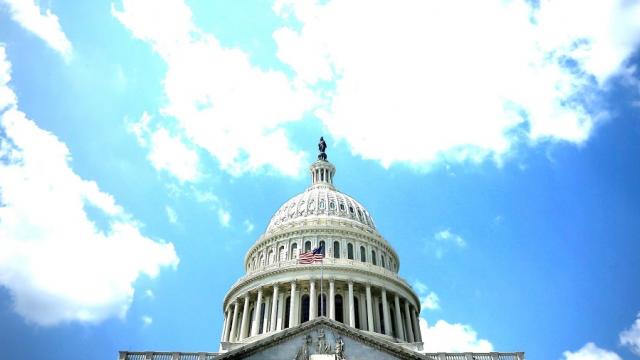
Two weeks ago, I was arrested at a sit-in to get big money out of politics and protect voting rights in Washington, D.C. With more than 1,300 people arrested on the steps of the Capitol since April 11 — including The Young Turks’ Cenk Uygur, Harvard law professor and former presidential candidate Lawrence Lessig, Ben and Jerry’s cofounders and actress Rosario Dawson — the Democracy Spring campaign has pulled off one of the largest acts of civil disobedience this century.
The timing, in many ways, couldn’t have been better. Not only did the Panama Papers drop while more than a hundred were on a 10-day march from Philadelphia to Washington preceding the sit-ins, but the corrupting influence of money on elections has been a major focus of the media spotlight. It’s estimated that by November $10 billion will be spent this election cycle, which would make it the most expensive election in history. Meanwhile, Hillary Clinton has been under fire in recent days for earning more in one speech — from corporations like Goldman Sachs, Deutsche Bank and General Electric — than Bernie Sanders and his wife made in all of 2014, according to his recently released tax return.
Democracy Spring is the culmination of years of hard work by 99Rise, which has organized a number of other smaller actions — including a historic disruption of the Supreme Court — to raise awareness on the issue and build the movement. And the extensive planning for this latest campaign was evident. Anyone participating in the action had to attend at least one training by organizers, which involved preparation for dealing with the media, learning how to maintain nonviolent discipline and roll-playing the sit-in. This was necessary, as many who took part had never engaged in civil disobedience before.
The campaign also distinguished itself by articulating concrete goals, calling for the passage of a series of already-introduced bills that would set up public financing of elections, overturn the Supreme Court’s Citizens United decision, and protect and expand voting rights and voter access. Another smart feature of Democracy Spring’s design was giving each day a particular focus — from racial justice to labor to the environment — which not only brought activists from a wide range of struggles into the movement, but also showed the difficulty of affecting real change on those issues with so much money in politics rights now.
While most major media did report on the campaign, many of the movement’s supporters were disappointed that the coverage was not more extensive. One factor, from my experience, that likely played a role in the lack of attention by the mainstream media was how the Capitol Police responded to the sit-in. Given that protest is so common in Washington, the police have developed sophisticated mechanisms to handle symbolic actions like Democracy Spring. The officers were unusually restrained, which minimized the drama of the action itself. This, no doubt, was by intention. In some ways, nonviolent action is theater, and the Capitol Police were much savvier in playing their role than is often the case.
This raises an interesting question for organizers of campaigns like Democracy Spring. When an action begins becoming predictable and routine, and media interest starts to fade, how do you maintain momentum? How do you reintroduce drama and spontaneity into the campaign, while not losing control? One way to do this is to shift tactics in a way that the opponent is not expecting. Activists with Democracy Spring tried this on Friday, when 12 people got inside the Capitol and tied themselves to the scaffolding beneath the dome in the rotunda. While this did generate some new coverage, there would likely need to be a higher degree of disruption over a more sustained period to recapture the media’s attention. This would be a challenging maneuver for any movement already in the thick of a campaign.
Nevertheless, Democracy Spring has taken the campaign against big money in politics and voter suppression to a new level. It reached millions with its message, activated thousands to get involved in the movement for the first time and put the issue on the radar of Congress to a new degree. The question that needs to be answered now is what the massive coalition that came together for this historic action is going to do to absorb that energy and momentum in order to take the struggle to new heights.
3 WAYS TO SHOW YOUR SUPPORT
- Log in to post comments











